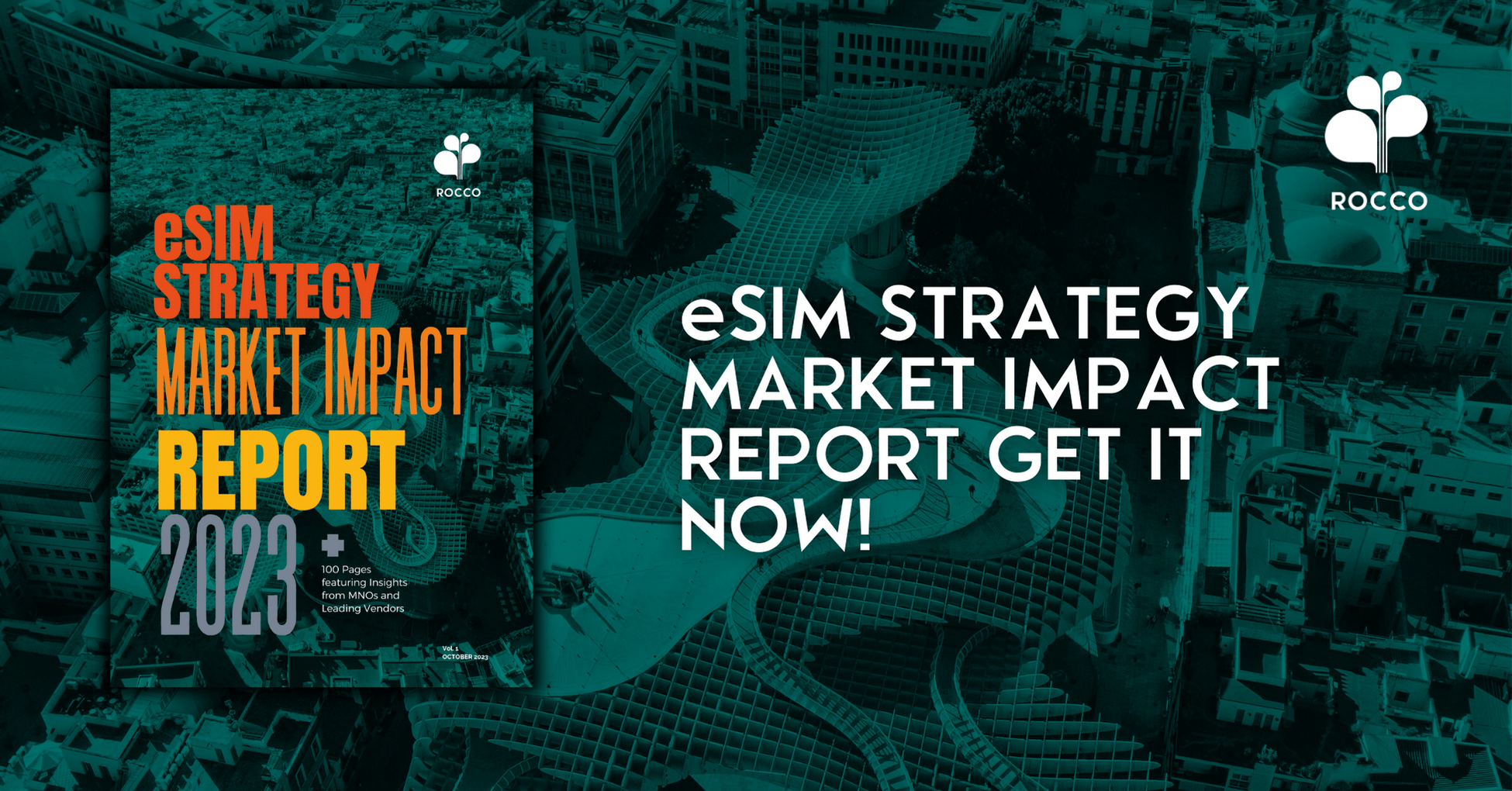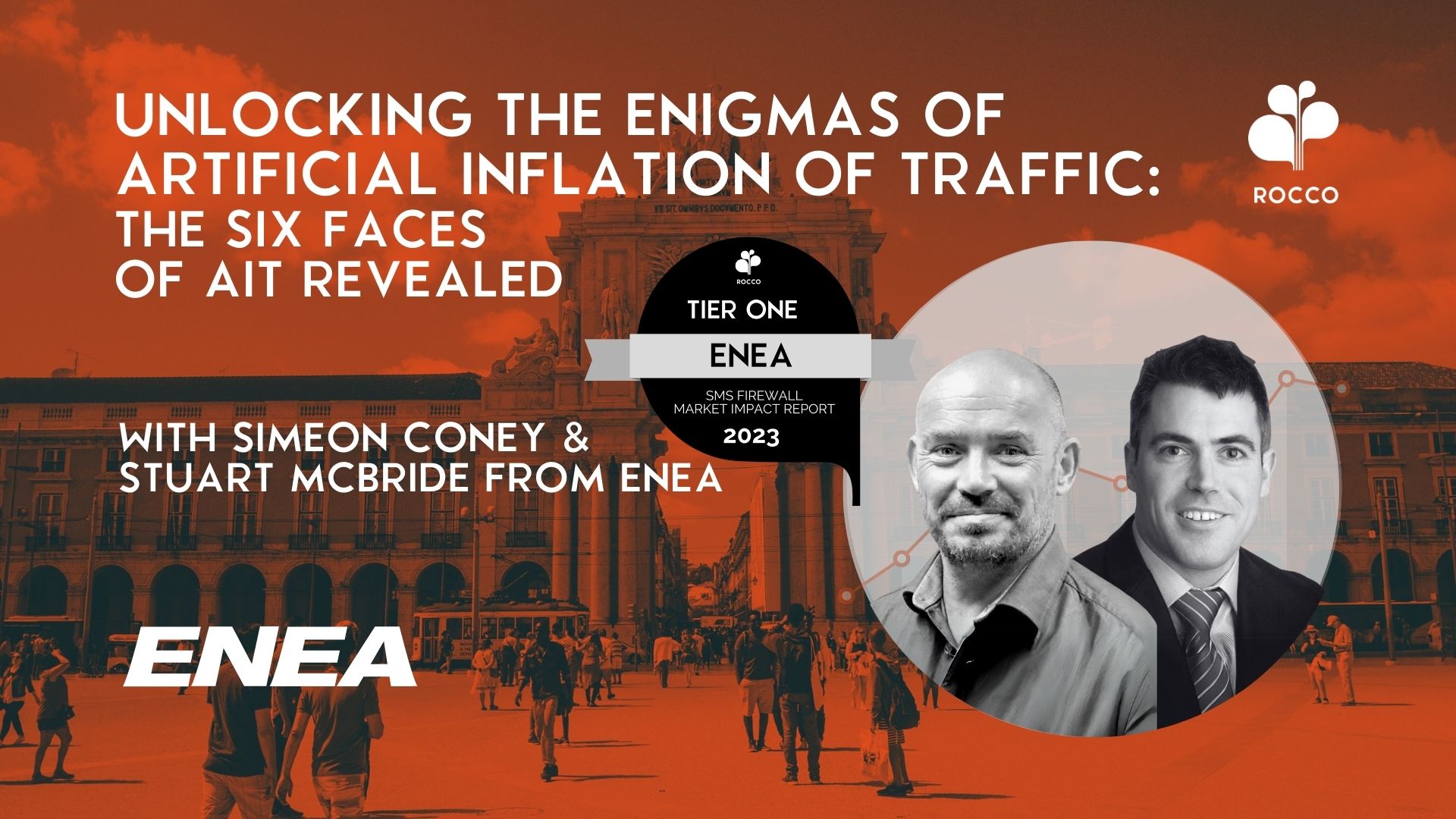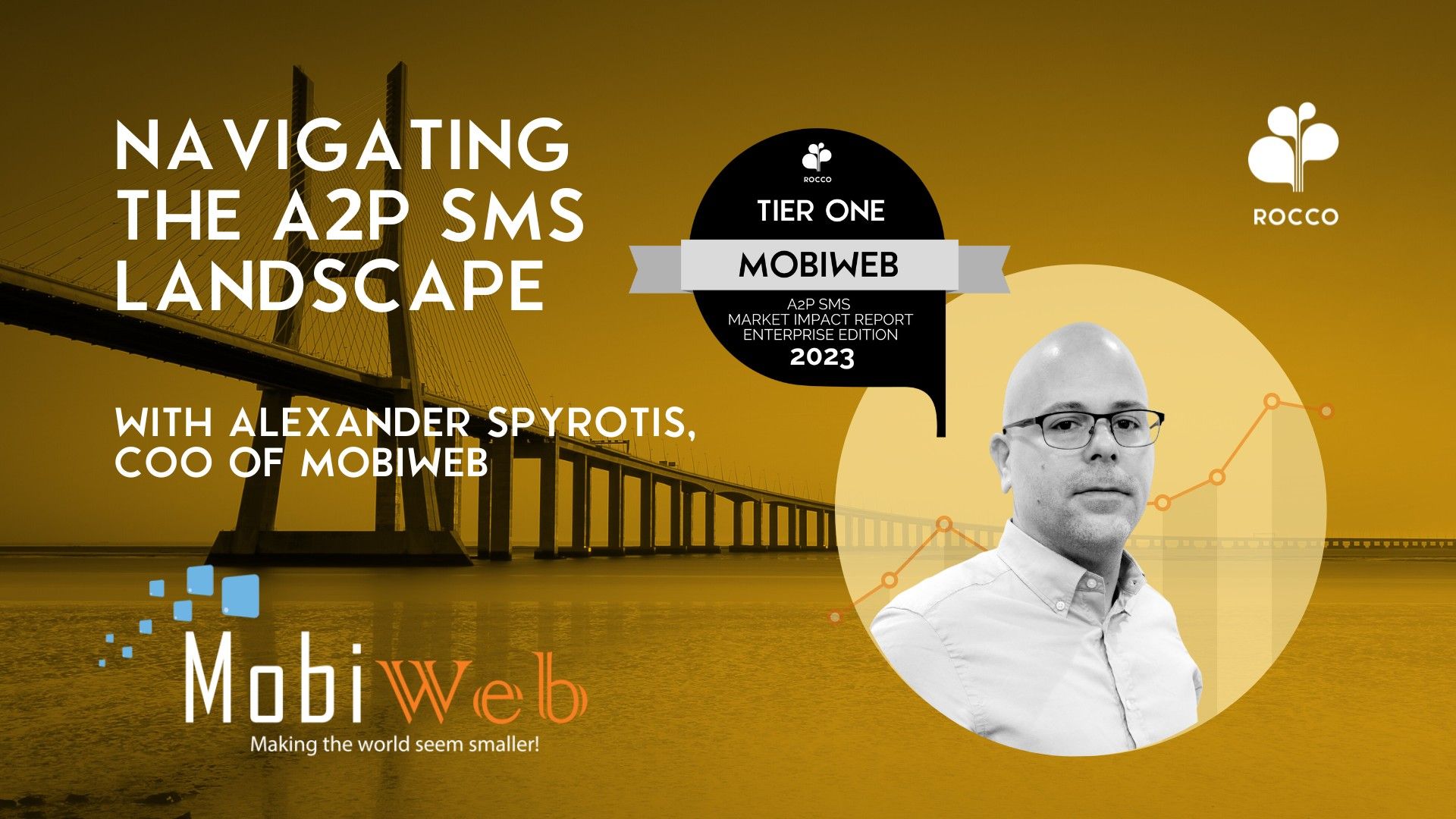ROCCO Interview with Twilio Sweden’s (Beepsend) Johan Stjernberger
 ROCCO Interview with Twilio Sweden’s (formerly Beepsend) Johan Stjernberger. A series of Interviews with the leading Vendors as chosen by MNOs from our Innovation survey 2017
ROCCO Interview with Twilio Sweden’s (formerly Beepsend) Johan Stjernberger. A series of Interviews with the leading Vendors as chosen by MNOs from our Innovation survey 2017
Last week at ROCCO we had the immense pleasure of spending some time with Johan Stjernberger, Delivery Manager at Beepsend and now Sr. Delivery Manager at Twilio. We asked Johan a little bit about innovation which is the backbone of success for every business and the push everyone needs in their personal development. Our Innovation report started last year and after processing the feedback of over 250 MNOs, we got to see the vendors who put extra effort to evolve in this dynamic industry. Beepsend was among the leaders, scoring a top rank on our list, so we were excited to learn a bit more about the formula of successful innovation from a true professional.
When asked about his role, Johan describes his organisation as a “Swiss army knife”, a very specific definition for a multitasking structure which includes: product maintenance, first line technical support, supplier quality assurance, SMS traffic routing, monitoring and control, network operations as well as interconnecting providers and some more. A truly fascinating concoction of operations!
The CEO of ROCCO, Jason Bryan, conducted the interview which resulted in a very interesting discussion between two specialists in the mobile industry…
Jason Bryan: First of all, I wanted to congratulate you: Beepsend did an amazing job and you are one of the leading innovators in the world according to the MNOs whose feedback is incredibly valuable in this industry.
Johan Stjernberger: We are really pleased and inspired that we ranked that high. I’ve been at Sony, Ericsson and other big companies, but when I started in this small company I was really struck by the agility and what you could do with your own 40 people. You have all the important skills under the same roof and you can call a meeting anytime to go over things. It’s a lot faster to turn ideas into products and you just don’t see that in big companies.
J.B: For sure, I think the smaller the company, the quicker you can design things. We want to dig in a little bit into the reasons why Beepsend is such an innovator; for me, it comes down to people, their attitude and how they work, that’s what makes a company great. We have a few questions for you and we’d like to know your perspective so the first question would be: what inspires you?
What inspires you
J.S: When it comes to finding the energy and the inspiration for work, I like to go outdoors and do sports like skiing and kite boarding. In those situations I usually find solutions to problems or new ideas pop up in my mind. Removing myself from daily work through these activities inspires me. Of course I’ve always been interested in technology, so I’m drawn to new things, new projects… and having the freedom to do my thing and meet new people has also inspired me workwise.
How do you capture Ideas
Everyone here is so open-minded and embraces new challenges with a ‘nothing is impossible’ attitude.
At some bigger companies, innovation is more structured and asked for, as in: here is the idea box, put your idea here and we’ll look at it, but it’s not efficient. You have to take the lid off and create some sort of a greenhouse for ideas. Thoughts can come up during meetings, so catch them and put them in the greenhouse to give it some time to root…see what happens.
J.B: You jumped here to our sixth question which was “How do you capture ideas?” and it’s really interesting; I worked for a big group where we had this ideas hub, but often people would never get the chance to see their ideas grow or to be launched. But that’s extremely important for innovators, I think.
J.S: You can’t create or innovate under pressure; it’s a mental process that needs to mature. Write it down, code a line, draw a picture and then revisit it later, let it grow on you.
Childhood idols
J.B: So now I want to move onto our second question: who are your childhood idols?
J.S: I have two kids who are three and five and they seem to be going through similar phases as me when I was a kid… superheroes and all that. But as I grew up I realised, my hero was actually my late uncle who was a farmer and had everything that comes with it: animals, machines. He basically taught me everything I know about practical things, construction, designing and fixing things. I hadn’t really thought about it until now and my mind immediately went to the superheroes, but actually my uncle was the one who inspired me the most to try new things and accept that nothing is impossible; we can fix everything. Farming is a profession that calls for a lot of creativity – it’s a good school and you need to work on your reactive capabilities to respond to different situations.
J.B: I’ve always liked hearing about the people that influence us one way or another; and I guess during the course of your career you’ve met other people who have influenced you in some ways?
J.S: For every phase that you go through in life, you always meet people that inspire you in some way. I seem to gravitate towards good leaders who help others grow and want to accomplish things as a team. So far I’ve been lucky to meet people like that in life and work. The day I end up not having inspiring people around is probably be a good time to move on.
Being influenced is also about being open to being pushed and challenged.
I have found myself initially disliking someone because I felt they pushed me, later realizing that I was simply pushed out of my comfort zone. It’s good when you have people who can challenge you; it’s the same for me in sports. You need to endure the hard work and sometimes painful learning curve to get to where the fun starts. And then you wonder why you even thought it was hard in in the first place.
What does Innovation mean
J.B: You’re Swedish born, and Sweden, along with the US and other countries, is very innovative and often innovation is something measured by patents – is that innovation? Or what does innovation mean to you?
J.S: In larger corporations I saw the importance of getting ideas to patent because that was also something we traded with. I understand the business behind it, but innovation is not always that – you can apply it to everything you do. There are so many levels of innovation and not all need to be patented to make a difference, while some are necessary to patent to protect business. The way I see it, innovation is about capturing value: provide a good environment and then you can create value from it in a more structured way. People need room and time for thoughts so they can develop their ideas. I like for my employees to have time to think about things and not always be fully booked.
Everyone has the potential to be innovative, you just have to create the right environment, this greenhouse where they could have the time and people to share ideas with. Many may say “no” at first, but after pooling some suggestions, something comes out of it. This is why the greenhouse is an important tool.
Failure or Success as the great teacher
J.B: Based on what you said, clearly you learn more from failures than from successes?
J.S: Success is inspiring, but for me personally failing is when I learn. I’ve had my fair share of failures in life, sports and professionally and having to deal with those and not back down is what made me learn and grow. I recently read someone saying “the person who fails the most wins” and think that’s true because it means you keep trying until you succeed. Helping to take the fear of failure away I believe makes people more daring, creative and openminded.
In Sweden I think we have a greater tolerance for failure. In some cultures, failure is seen as only a negative. People in Sweden don’t like to be told what to do, so it is not the norm to have to direct people for something to happen. In my view that sustains a good innovation culture as I believe it grows from the bottom up.
The one that got away
J.B: If there was one innovation you wish you had made when you had the chance, what would it have been?
J.S: The computer mouse is a cool thing that is still around after so many years of computers, still works the same, same design and it’s a great idea. All the court battles the guy went through to patent that is probably not worth it, though!
Also we need to get rid of cables; we have to fix that.
Your future Innovations
J.B: You’ve clearly had a great year of innovation this year and you’re part of the Twilio group now, so what does the roadmap look like for this year then?
J.S: We have a lot synergies to leverage through the merger with Twilio but there are two things we focus on in my team for the near future and that is quality and support improvements. We want to become better at proactively detecting and responding to route issues. We keep automating as everything spins faster and global reach increases which calls for assisted decision making. From experience I believe that a healthy path towards automation goes by semi- automation where our operators maintain flexibility.
We want to continue working with MNOs and create solutions. We see the traffic from many different networks, so we think we can do a really good job with that knowledge. We are really spending a lot of time thinking and organizing to offer better products and solutions to our customers. But we need to keep tailoring solutions – we need to shape specific products around the customer’s specific needs. And most of all, we want to stay with our agile company mindset while we’re growing.
 Beepsend is now known as Twilio Sweden and ranked 4th place in ROCCO’s “The Innovators” Report 2017 a piece of research produced solely from the feedback from over 250 global MNO responses to 18 key Innovation KPIs.
Beepsend is now known as Twilio Sweden and ranked 4th place in ROCCO’s “The Innovators” Report 2017 a piece of research produced solely from the feedback from over 250 global MNO responses to 18 key Innovation KPIs.
Learn more about our report here
Polina Hristova Journalist at ROCCO









